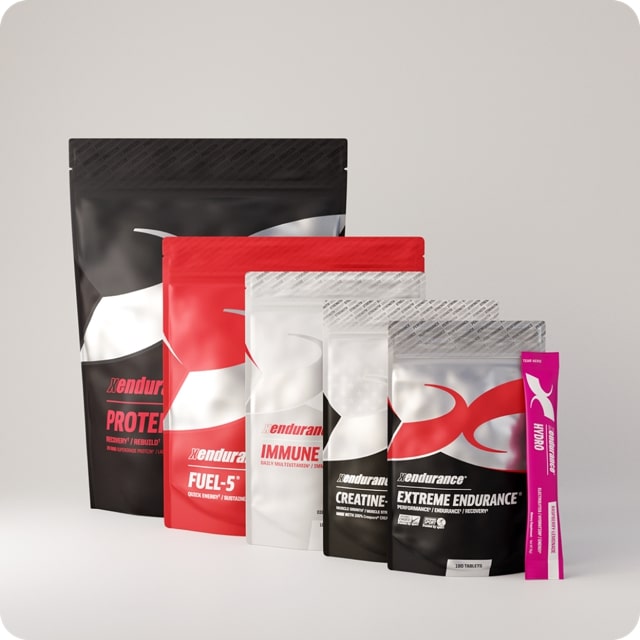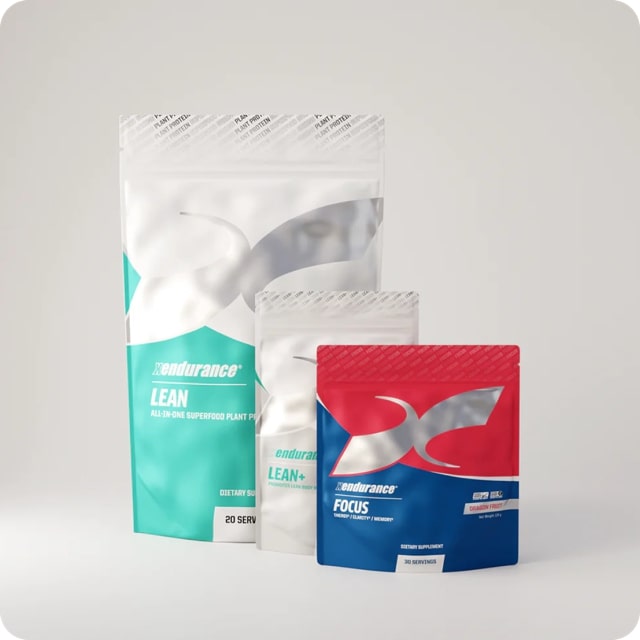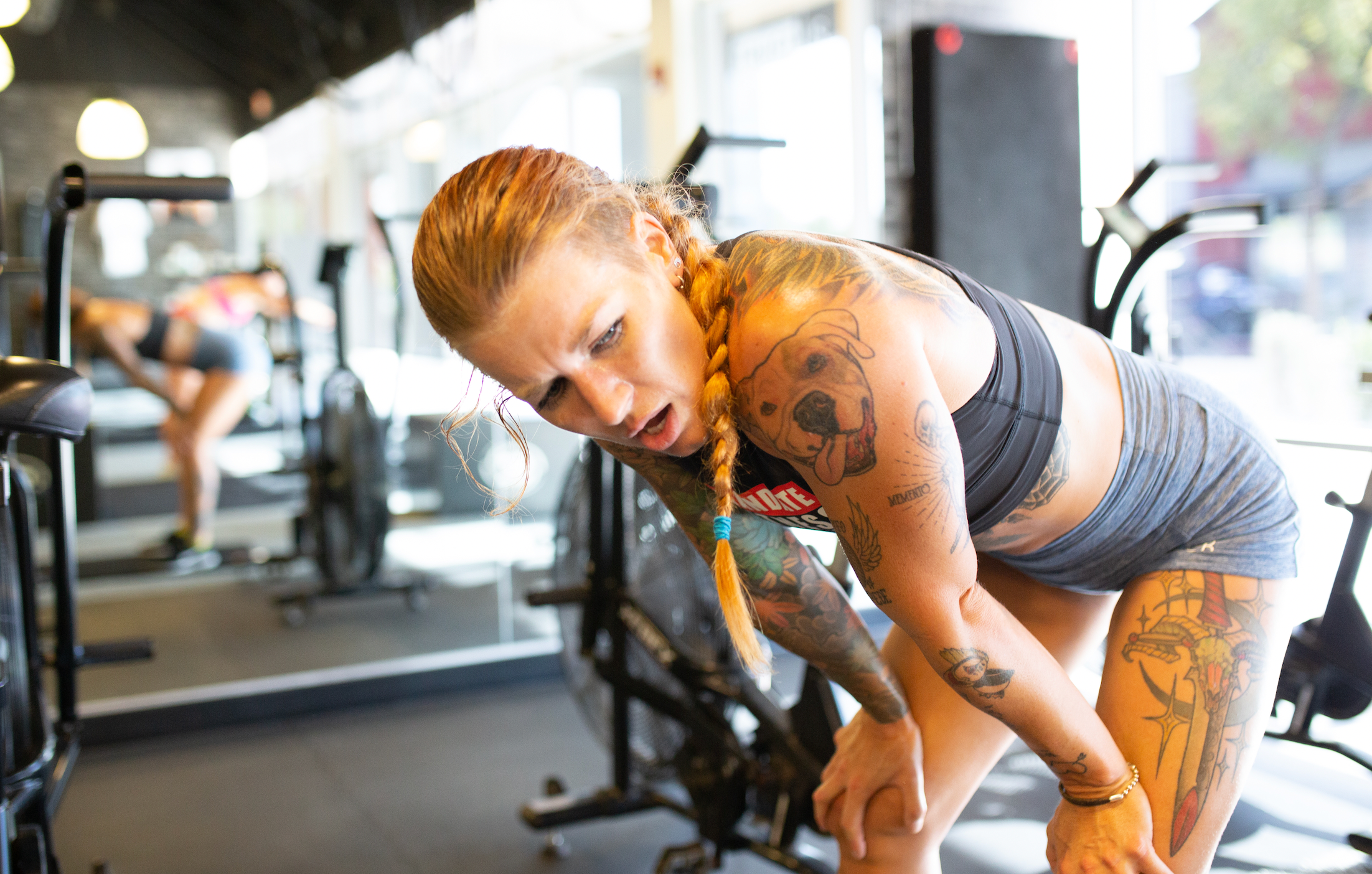
There is a prevalent notion that creatine is a “guys only” supplement or that you only use it to “bulk up.” But this couldn’t be more wrong.
Creatine is an essential compound that plays a crucial role in energy production. So when you’re exercising and expending a lot of energy, creatine can protect against fatigue and ensure you can perform at the same level. Even better, it can help make you stronger and leaner.
Creatine also has many other benefits that can support your overall health. So it’s worth considering even if you’re not trying to build muscle.
Do you still need convincing? Here’s what you need to know about the benefits of creatine for women.
Top 5 Reasons Why Women Should Take Creatine
Creatine plays an integral role in energy metabolism. However, most studies have focused on its effect on males. But that isn’t to say that women can’t benefit from creatine supplementation.
Curious about what creatine does to a woman’s body? Here’s what you need to know.
1. Increases Muscle Strength and Power
Creatine supplementation helps increase strength and power. This is due to increased ATP turnover, which prevents fatigue. In turn, you can train harder, achieve more significant gains, and recover faster after intense exercise.
In one study, young females took 20 grams of creatine for 4 days, followed by 5 grams daily for a 10-week resistance training program. They showed significant improvements in body strength (leg extension, leg press, and squats) compared to the placebo group.
Participants also saw increases in fat-free mass without significantly affecting body weight and body fat percentage. This helps counter the misconception that creatine leads to weight gain.
The existing literature on creatine for women has demonstrated increased body strength for both trained and untrained participants and during anaerobic and aerobic exercise.
As such, creatine supplementation is not only beneficial for those who want to build muscle. Women of varying fitness levels can take creatine to improve their body strength.
2. Promotes Healthy Weight and Body Composition
Contrary to popular belief, creatine does not lead to weight gain — at least not in the traditional sense. What most women experience when first taking creatine is water retention.
That’s because creatine draws water to the muscles. And in that water, you’ll find oxygen and nutrients that your muscles need to grow and develop.
The water retention might last a few weeks but will diminish over time.
Another popular question is, can you take creatine for women’s weight loss? Yes — but indirectly.
Creatine itself does not lead to weight loss. However, studies have found that creatine supplementation leads to an increase in lean muscle or fat-free mass. So even though you might notice your weight go up, it’s muscles that you’re gaining, not fat.
As such, creatine supplementation can support healthy weight and body composition — especially since we tend to lose muscle mass as we age. This is supported by studies showing that creatine can improve muscular performance in older women.
3. Improves Cognitive Performance
During exercise or other activities with increased energy demands, creatine supplementation can ensure that the brain has the energy it needs to carry out cognitive processes.
As such, creatine may help maintain or improve cognitive performance.
In another study, the older male and female participants underwent 16 weeks of resistance training with creatine supplementation. Those who took 5 grams of creatine per day showed increased cognitive performance along with increased handgrip strength.
Creatine does not necessarily improve long-term memory or intelligence. However, studies have found that it can enhance complex cognitive processes such as reaction times, recall ability, coordination, and decision-making.
Some studies have found that cognitive improvements were more pronounced in stressed participants. This suggests that creatine supplementation may help protect cognitive performance under physically stressful situations, such as when one is sleep-deprived or doing intense exercise.
4. Protects Against Injury and Diseases
Though researchers have not identified a direct link, there is increased interest in the protective properties of creatine that can protect against injury and diseases.
Studies have found that creatine can help lower cholesterol, manage blood glucose levels, and improve mitochondrial function. All of these are essential factors in improving cardiovascular health and reducing the risk of heart disease.
According to the International Society of Sports Nutrition, creatine supplementation may help prevent or manage injuries. Creatine is also used as therapeutic support for those with muscular dystrophy and other neuromuscular disorders.
In addition, researchers have focused on creatine supplementation to address age-related conditions, including muscle weakness and cognitive impairments.
5. Safe to Use
Numerous studies have illustrated that creatine is safe to take and well-tolerated by the body.
After all, it is an essential compound naturally produced by the body. It is also found in many foods we eat, including meat, poultry, seafood, and dairy.
There have also been no adverse health effects associated with long-term creatine supplementation.
How Much Creatine Should Women Take?
Studies have found that women respond to creatine differently compared to men. For instance, changes in creatine metabolism have been associated with women’s reproductive cycle and whether they are pre-menopausal or post-menopausal.
Women also have lower creatine stores in the body and tend to consume less creatine in their diets. As such, supplementation can help increase physical strength and performance.
However, studies have found that women have higher intramuscular concentrations, which account for lower responsiveness to creatine. So to maximize the benefits of creatine, women may need to take higher doses compared to men.
Recommended Dose
The standard recommended dose is 0.1 grams of creatine for every kilogram of body weight per day. Those who want to build muscle may want to increase intake to 0.3 g per kg per day for faster and more noticeable results.
Experts suggest 3 to 5 grams per day combined with regular exercise or training to experience the positive effects of creatine. For those who want to bulk up, the dosage may increase by up to 10 grams of creatine per day and may even go up to 20 grams during the loading phase.
Xendurance’s Creatine-JB is formulated with Creapure® Creatine — one of the purest forms of creatine monohydrate with 99.9% bioavailability. This ensures that your creatine stores are adequately replenished to provide the most benefit regarding muscle strength and overall function. No need to load with this easily-digested formula!
Experience the Wonderful Benefits of Creatine for Women
Based on the studies on creatine for women, creatine supplementation can help you increase your strength and athletic performance. It can also improve cognitive function, which allows you to think quickly on your feet.
These can ensure that you’re at your best during intense physical activity.
As long-term supplementation has not been associated with any adverse health effects, creatine may be able to help protect you from injury and diseases — especially the ones that come with age.
So if you’re looking to build strength to take on challenges inside and outside the gym, consider trying a creatine supplement today!











Leave a comment
This site is protected by reCAPTCHA and the Google Privacy Policy and Terms of Service apply.